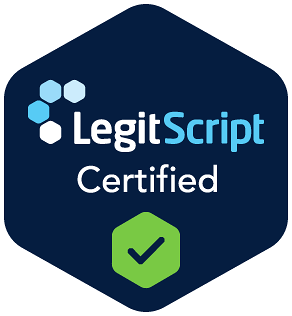Outpatient addiction treatment offers a flexible approach to recovery but is fraught with challenges such as environmental instability, daily stressors, and pervasive social stigma. These factors can greatly impede progress, making it imperative to explore effective strategies that address these barriers. Solutions may involve tailored treatment plans, innovative therapeutic techniques, and robust support systems. Understanding how these elements interact and can be optimized is essential for enhancing recovery outcomes. Yet, what specific strategies can truly make a difference in this complex landscape?

Final Thoughts
To summarize, outpatient addiction treatment presents significant challenges, yet effective solutions can facilitate recovery. Personalized treatment plans, evidence-based therapies, and medication-assisted treatment are essential components that empower individuals on their healing journey. Establishing strong support systems through family involvement and peer groups further enhances resilience and engagement. By addressing these challenges with targeted strategies, the potential for long-term recovery success is greatly increased, fostering hope and transformation for those affected by addiction.
If you or someone you care about is grappling with substance abuse, remember that support is within reach. At Bluecrest, we provide an intensive outpatient program customized to suit individual needs, fostering recovery and optimism. Our team of devoted professionals is dedicated to offering the guidance, support, and tools needed to navigate the path to sobriety.
Frequently Asked Questions
What Should I Expect During My First Outpatient Treatment Session?
During your first outpatient treatment session, you can expect a warm and supportive environment. A trained professional will conduct an assessment to understand your unique situation and needs. This may involve discussing your history with substance use and any underlying issues. You will also learn about the program structure, treatment options, and goals.
How Long Does Outpatient Addiction Treatment Typically Last?
Outpatient addiction treatment typically lasts between 8 to 12 weeks, although this can vary based on individual needs and progress. Sessions may occur several times a week, focusing on therapy, education, and support. It’s important to understand that recovery is a personal journey; some individuals may require a longer duration to achieve their goals.
Are Family Members Allowed to Participate in Outpatient Therapy Sessions?
Yes, family members are often allowed, and sometimes encouraged, to participate in outpatient therapy sessions. Their involvement can provide vital support and foster understanding of the addiction process. Family therapy sessions may help improve communication and strengthen relationships, beneficial for both the individual in treatment and their loved ones.
What Happens if I Miss an Outpatient Treatment Appointment?
Missing an outpatient treatment appointment can hinder your progress and disrupt the continuity of care. It’s important to communicate with your treatment provider about your absence, as they may offer options for rescheduling or alternative support. Setbacks can happen; addressing them openly is essential for your recovery journey.
Will My Insurance Cover Outpatient Addiction Treatment Services?
Insurance coverage for outpatient addiction treatment services varies by provider and individual policy. Many plans include coverage for these essential services, greatly alleviating financial burdens. Contact your insurance company directly to inquire about specific benefits, copayments, and any prerequisites for treatment.
Common Challenges in Outpatient Treatment
Many individuals seeking outpatient addiction treatment encounter common challenges complicating their recovery journey. A prominent issue is the lack of a structured environment, making it difficult for patients to maintain focus on recovery goals. Unlike inpatient programs, outpatient settings require individuals to navigate daily lives while managing cravings and triggers, causing vulnerability and overwhelm.
Another significant challenge is potential social stigma; individuals may face judgment or lack understanding from friends or family, leading to isolation. Additionally, external stressors such as work or family responsibilities can hinder prioritizing recovery. Balancing obligations while attending therapy sessions and support meetings can feel overwhelming, leading to possible setbacks.
Effective Solutions for Patients
Steering through outpatient addiction treatment can be challenging, but effective solutions can greatly improve the recovery experience. Personalized treatment plans tailored to meet each patient’s unique needs are crucial. Incorporating evidence-based therapies like Cognitive Behavioral Therapy (CBT) and Dialectical Behavior Therapy (DBT) helps patients identify and change detrimental thought patterns and behaviors, managing cravings and avoiding relapse.
Medication-assisted treatment (MAT) for opioid or alcohol addiction is another crucial component. MAT alleviates withdrawal symptoms, facilitating engagement in recovery without overwhelming discomfort. Establishing a routine including regular therapy sessions and activities like exercise or mindfulness enhances well-being and resilience, promoting positive habits essential for long-term recovery.
Support Systems and Resources
A strong support system enhances outpatient addiction treatment’s effectiveness. Individuals often face numerous challenges, and supportive relationships can significantly impact their journey. Support systems may include family members, friends, counselors, and peer support groups, providing encouragement, accountability, and understanding.
Family involvement fosters a nurturing environment promoting healing; educating them about addiction helps reduce stigma. Peer support groups like Alcoholics Anonymous (AA) offer belonging and shared experience, invaluable during recovery. Professional resources, including therapists and case managers, guide individuals through addiction complexities, ensuring access to appropriate interventions and support.



